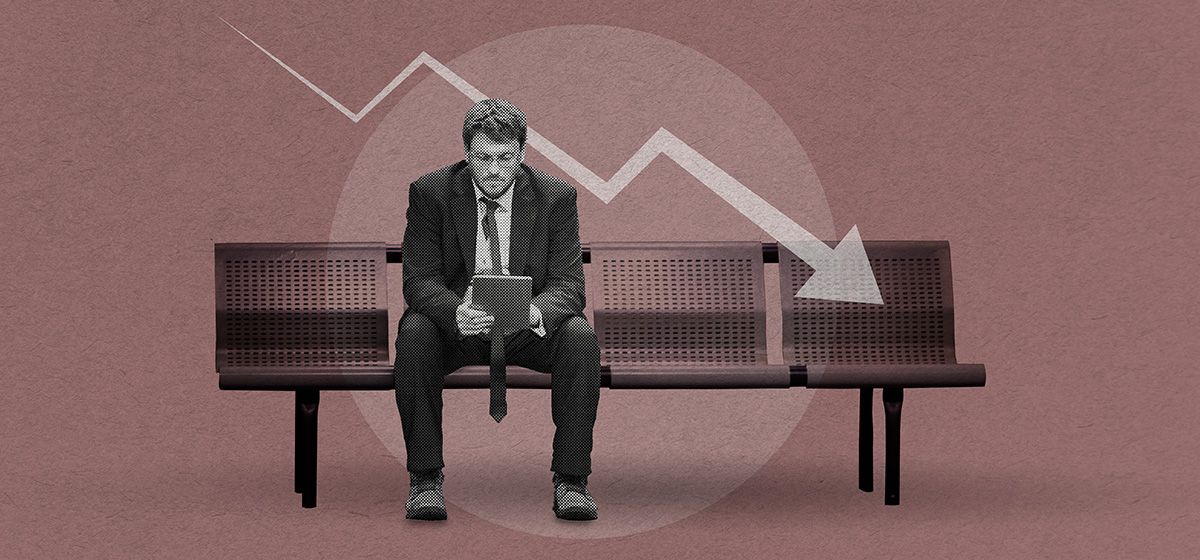The Fed is Poisoning the Economy

“The Fed can remain irrational longer than you can remain solvent.” –What Keynes should have said.
Last week I made two related points:
- The agonizingly slow economic growth and rapid increase in inequality the United States has experienced over the past decade aren’t the cause of constant Fed intervention; they are a direct consequence of constant Fed intervention. Since Fed intervention during the current pandemic is roughly three times as aggressive as it was during the Global Financial Crisis, we can expect that the next decade will exhibit even slower economic growth and even greater inequality, with consequences the U.S. political system won’t be able to handle.
Let’s take a look, in no particular order, at some of the consequences of the Fed’s endless intervention that we can expect to endure over the next 10 years or so.
Distorted price signaling. A free market economy that doesn’t know the price of things (money, bonds, stocks, future inflation, etc.) is an economy that is seriously hobbled. For reasons best known to itself, the Fed has decided to manipulate those prices, resulting in broad mispricing of assets, underinvestment, slowed productivity, massive confusion, and the slowest economic recovery in U.S. history. Are memories really this short? Wasn’t the absence of price discovery—that is, marks—on complex derivatives the principal contributor to the 2008 financial meltdown?
Piling up massive debt. The Fed’s activities have caused public debt to explode. As recently as the turn of the twenty-first century U.S. government debt was about 30 percent of GDP. It’s now 100 percent (an “Italian-style fiscal milestone,” in the words of the Wall Street Journal). In addition, by pushing interest rates down to zero, corporations have been encouraged—indeed, practically required—to pile on debt. This huge increase in public and private debt makes the economy vastly more fragile and prone to plunging into another crisis soon. Rogoff and Reinhart, in their survey of 700 years of economic history, demonstrated that once a society’s debt burden exceeds 90 percent of GDP, growth slows appreciably.
There are only bad options for dealing with our debt. Assuming no one wants a Japanese-style economy (no growth for three decades), what are the options? They are few and dismal.
- Raise taxes massively and use the proceeds to pay down the debt. But we know from long experience that huge tax increases themselves cause economic growth to slow. In any event, the likelihood that Congress would use higher taxes to pay down debt is risible.
- Inflate our way out. In the 1970s, following massive spending by Lyndon Johnson on the Great Society and the Vietnam War, U.S. inflation rose to 14 percent and interest rates to 20 percent. But do we really want another decade of stagflation?
- Grow our way out. If real economic growth is higher than debt payments, we could conceivably grow our way out of our mountain of debt, at least over a long period of time. Currently, debt service is 2.5 percent of GDP. The United States certainly didn’t grow that fast (in real terms) during the decade following the Global Financial Crisis, and I’ve pointed out above that we are likely to grow even more slowly over the next decade.
- Live with it. We could simply allow our debt to stay where it is, piling on whatever additional debt politicians insist on. That debt mountain would then explode even further when the next crisis comes along. Our great grandchildren will curse our memory.
The bizarre phenomenon of zombie companies. A zombie company is one whose cash flow (or EBITDA) isn’t sufficient to cover its interest payments on debt. In the early 1990s there were virtually no zombies in the United States, while today roughly 20 percent of all American firms are zombies. “Zombie congestion” in any industry retards productivity and competitiveness, as we have seen in Japan—zombie companies can’t invest in the future because all their cash flow is dedicated to debt service. Normally, recessions mercilessly sort out productive firms from zombie firms, eliminating the latter (via takeovers, bankruptcies, etc.) so that the competitive level of the overall economy can rise. But the Fed’s policies have prevented recessions from occurring—hence, our plethora of zombies, weighing down the economy.
The rise of giant firms. Research shows that constant government stimulus fuels the rise of giant firms in many ways, but especially by propping up the value of firms’ stocks, which are then used as a currency to acquire other firms. The ability to sell very low-yielding bonds also allows firms to borrow massively and then use the cash to acquire potential competitors. Apple sold $8 billion of low-yielding bonds in May and then another $5.5 billion in August. And Apple already had more than $100 billion of cash and short-term investments on its balance sheet.
The Euthanasia of the Rentier. Way back in 1936 John Maynard Keynes predicted the eventual “euthanasia of the rentier.” In other words, people who saved their money all their lives and now planned to retire on those savings (“rentiers”) would be wiped out by ultra-low interest rates. For 72 years, right up until 2008, Fed Governors were sensible enough not to punish prudent Americans like this, but this Fed has thrown ethics to the wind.
We have forgotten how to take responsibility. Felix Zulauf, the money manager and 30-year member of Barron’s Roundtable, has pointed out that “Our entire society has forgotten how to take responsibility.” And why not? Constant Fed interventions have eliminated the possibility of loss, so there is nothing to take responsibility for. Run your company—or your life—as irresponsibly as you wish, there will be no consequences. “Investors,” says Seth Klarman (Baupost Group), “are being infantilized by the relentless Federal Reserve activity.”
Undermining the free market itself. The inability of the Fed to stomach any kind of economic risk “is undermining the natural resilience of capitalism and now threatens its very survival,” according to Rushir Sharma, chief strategist at Morgan Stanley Investment Management. The U.S. economy can’t flourish in a world of constant Fed intervention, and as it fails to flourish, confidence in free markets will wane—in favor of socialism or some variant of that discredited model.
Other than that, it’s all good.





